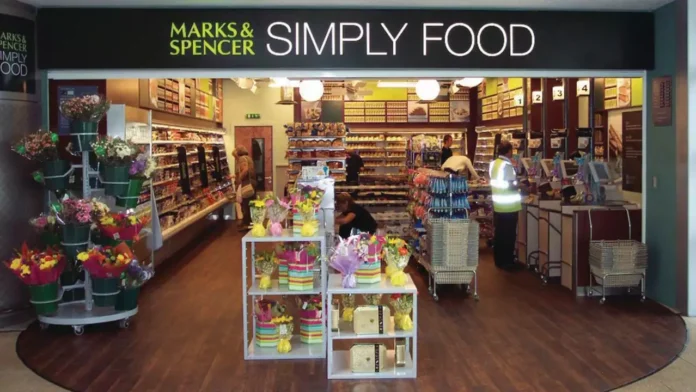UK industry data released on Tuesday indicated that Marks & Spencer’s food retail arm continued to capitalize on the strong sales momentum of 2023, carrying it into the early weeks of the new year.
According to market researcher NIQ, Marks & Spencer’s grocery sales surged by 11.6% year-on-year in the 12 weeks leading up to January 27, placing it second only to Lidl, a German-owned discounter, which experienced a 13.2% increase and is hailed as Britain’s fastest-growing grocer.
The leading market player, Tesco, recorded a sales growth of 6.9%, whereas Sainsbury’s, holding the second position, achieved a growth of 8.4%.
Continue Exploring: UK retail giant Tesco revises profit forecast following strong Christmas sales performance
Asda and Morrisons were once again among the laggards, with sales growth of 2.7% and 3.4% respectively, as shown by the data.
During the four-week period ending on January 27, UK supermarkets experienced a 6.6% year-on-year increase in total sales, as reported by NIQ. Meanwhile, food inflation stood at 6.1%, marking its lowest rate since June 2022.
Echoing the data from rival market researcher Kantar last week, NIQ stated that promotional activity accounted for 23% of sales, down from 26% over Christmas.
Furthermore, it noted that online grocery retained its share of 11.2% of the total grocery expenditure.
On a separate note, Tuesday’s data from the British Retail Consortium revealed that retailers experienced sluggish overall sales in January, reflecting consumer caution towards spending. This underscores the impact of high inflation and borrowing costs, which are placing pressure on households.
Continue Exploring: UK grocery costs remain 30% higher than two years ago despite ongoing inflation easing





